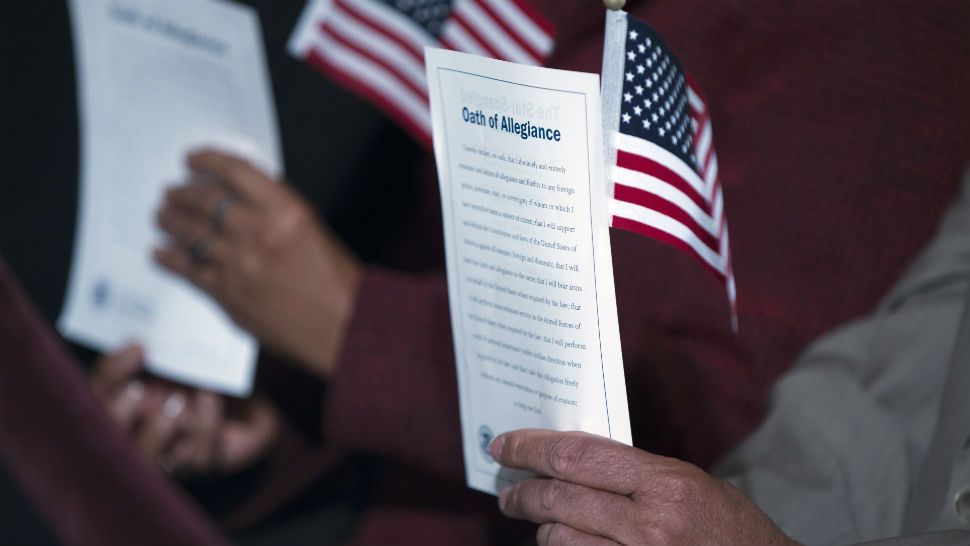WASHINGTON — The 2020 U.S. Census will include a question about citizenship status, a move that brought swift condemnation from Democrats, who said it would intimidate immigrants and discourage them from participating.
The population count taken every 10 years is more than an academic exercise. It's required by the Constitution and used to determine the number of seats each state has in the House as well as how federal funds are distributed to local communities. It helps communities determine where to build everything from schools and grocery stores to hospitals.
The census regularly asked about citizenship between 1820 and 1950, when the question was removed.
Congress delegated to the secretary of the Commerce Department the authority to determine census questions. Commerce Secretary Wilbur Ross had until the end of March to submit the list of questions to Congress. The department said the citizenship information would help the Justice Department enforce the Voting Rights Act, which protects minority voting rights.
"Secretary Ross determined that obtaining complete and accurate information to meet this legitimate government purpose outweighed the limited potential adverse impacts," the department said in its announcement.
A coalition of state attorneys general urged the department last month to not add such a question, saying it could lower participation among immigrants and cause a population undercount.
California Attorney General Xavier Becerra said the state will sue the Trump administration over its decision.
"We're prepared to do what we must to protect California from a deficient Census," he said. "Including a citizenship question on the 2020 census is not just a bad idea - it is illegal."
House Democratic leader Nancy Pelosi said Tuesday that adding such a question "will inject fear and distrust into vulnerable communities and cause traditionally undercounted communities to be even further under-represented, financially excluded and left behind."
Democratic lawmakers had been bracing for the decision in recent months. They've held press conferences and made it a point to question Ross about his thinking during appearance at congressional hearings.
But some Republican lawmakers hailed the decision. GOP Sens. Jim Inhofe of Oklahoma, Tom Cotton of Arkansas and Ted Cruz of Texas had sent a letter to the Commerce Department asking Ross to add the question.
"It is imperative that the data gathered in the census is reliable, given the wide ranging impacts it will have on U.S. policy," Cruz said in a press release issued by the three lawmakers. "A question on citizenship is a reasonable, commonsense addition to the census."
The Commerce Department, in a memorandum, said the move is a way to better enforce Section 2 of the Voting Rights Act.
Census counts are taken by mail and by workers walking neighborhoods. The Census Bureau says that the 2010 census drew a massive response, with about 74 percent of the households mailing in forms and the remaining households counted by workers in neighborhoods.
ProPublica, the nonprofit investigative journalism organization, disclosed in December that the Justice Department had asked the Census Bureau to make the change.
In an op-ed published Sunday, California's attorney general and secretary of state called the addition illegal based on Constitutional requirements.



